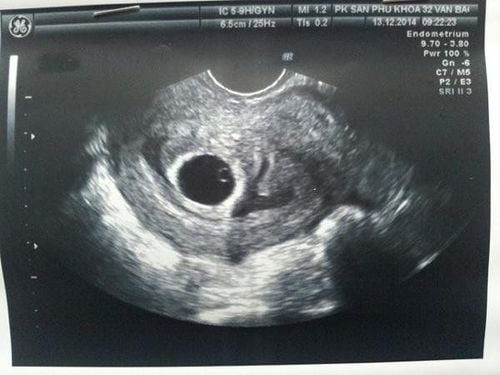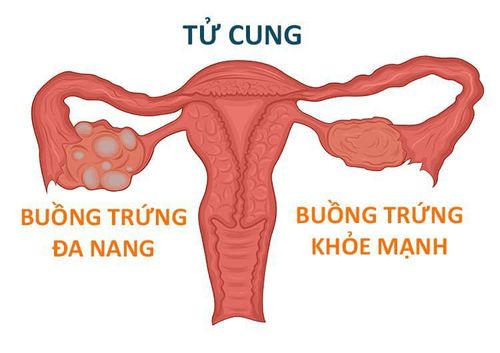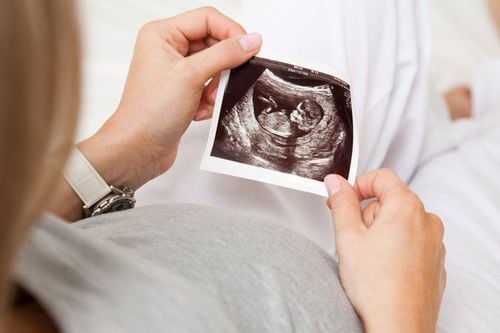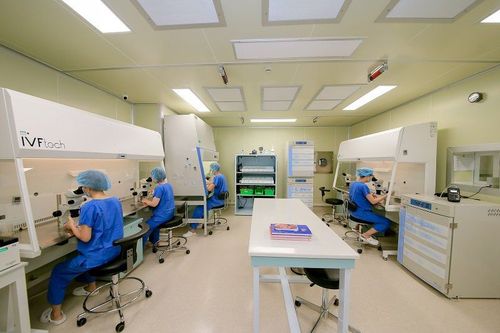This is an automatically translated article.
The article was professionally consulted by Specialist Doctor Obstetrician and Gynecologist - Department of Obstetrics and Gynecology - Vinmec Hai Phong International General Hospital
Ovulation is the release of an ovum from a mature follicle from the ovary. LH hormone is directly involved in ovulation, any change or abnormality in the hormone LH can cause ovulatory disorders affecting fertility in women.
1. What is ovulation?
Normally, at the end of each menstrual cycle, due to the action of hormones, about 6 to 7 primordial follicles in the ovaries develop, after a few days under the influence of hormones, these follicles will increase in size.
After about 7-8 days of development, there are some follicles that will grow faster and others will gradually recede. In the fast-growing follicles, the strong-growing follicle reaches a size of about 1.8-2.3 cm, which is called a mature follicle. After the follicle matures, ovulation occurs. Ovulation, also known as ovulation, occurs under the influence of the hormone LH, causing the follicle to swell and the wall of the follicle to become thin and weak, leading to the follicle bursting and releasing the egg from the follicle. Ovulation usually occurs 13-14 days before the menstrual cycle.
When the follicle is released, it will be caught by the oviduct, if it meets sperm, fertilization will occur, then the fertilized egg will move to the uterus. If there is no fertilization, the follicle will gradually regress. The remaining cells in the capsule shell are under the influence of FSH and LH hormone by the pituitary gland to continue to secrete after ovulation, causing a few follicle cells to transform into the corpus luteum. The corpus luteum secretes large amounts of progesterone and estrogen.
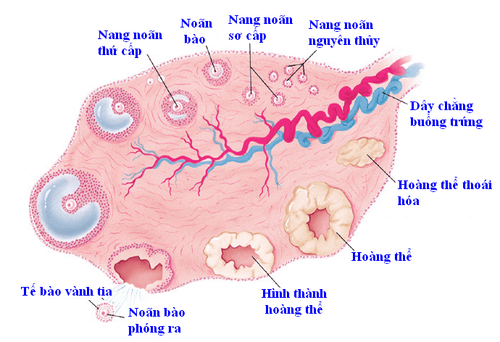
2. Which hormone stimulates ovulation?
Involved in the development of follicles, including LH hormone and FSH hormone, in which FSH hormone, also known as oocyte-stimulating hormone, is a hormone of the anterior pituitary gland that stimulates the development of follicles. To the mature form called follicle ripening, this hormone only causes the follicle to ripen, but has no effect on causing the egg to be released. And LH hormone is also a hormone secreted by the anterior pituitary gland under the influence of GnRH and estrogen hormones that have the effect of ripening the follicle membrane, making the follicle membrane thin and fragile, increasing the secretion of fluid in the follicular sinus. To reach a great pressure causes the follicle to burst, the ovum is released.
LH hormone begins to be secreted in low concentrations from the first day of the menstrual cycle and gradually increases until it is large and peaks about 14 days before menstruation. Ovulation occurs 36-42 hours after LH hormone levels peak.
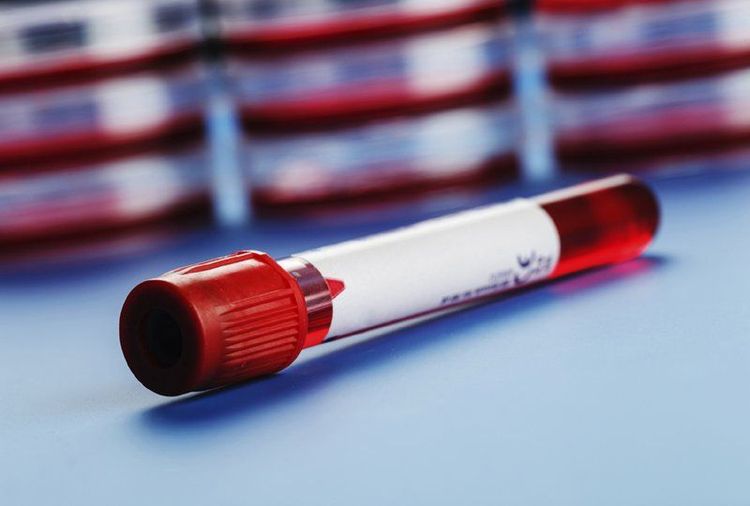
3. Ovulation abnormality
If LH hormone levels are too high or too low, it can cause problems with ovulation, affecting conception, and can cause infertility.
According to research, it has been found that to facilitate ovulation, the ratio between the two hormones, FSH/LH, is about 3/1. In patients with polycystic ovary syndrome, the hormone LH is too high, causing the follicles not to develop until they reach maturity, ovulation does not occur, causing difficulty conceiving, the menstrual cycle is often prolonged. In addition, high levels of the hormone LH also increase the risk of miscarriage in these patients. When the LH hormone deficiency causes insufficient estrogen formation, the result is a decrease in the concentration of estrogen in the follicular fluid as well as in the serum.
Therefore, abnormal LH hormone levels are one of the causes of ovulatory disorders. Ovulation disorder is a phenomenon in which the ovum is not released according to a certain cycle, irregular shedding, thereby causing menstrual disorders, the most common cause of infertility, up to 40% of infertility cases. female birth is caused by this phenomenon.
Ovulation disorders have different clinical manifestations such as amenorrhea, menstrual irregularities, obesity ... In addition, ovulatory disorders can be the cause of endometrial cancer or breast cancer. .

To determine the ovulatory disorder caused by LH hormone, it is necessary to measure LH hormone: The measurement of LH in the blood should be carried out at the same time every day, 3-4 days before the time of suspected ovulation. ovum, which can be identified by ultrasound. When an increase in LH levels is observed, testing should be performed every 12 hours to determine the LH peak. However, since such measurement of LH in the blood is troublesome and painful for the patient, it is possible to quantify LH in the urine because mid-cycle increases in urinary LH concentrations followed by LH levels. in the blood for about 12 hours.
Cases of patients with ovulatory disorders due to abnormal LH hormone levels can be treated with ovarian stimulation methods.
Under the influence of the hormone LH, the follicle ovulates or ovulates, abnormalities in LH hormone levels directly affect the ovarian cycle, causing changes in the menstrual cycle, the body and important most likely to cause female infertility.
The assisted reproductive techniques performed at Vinmec IVF Fertility Center are performed by a team of highly qualified and experienced doctors and specialists, capable of synchronous deployment and comprehensive range of the most advanced assisted reproductive techniques today, helping to realize the dream of parenthood of hundreds of families across Vietnam.

If you want to book an appointment and consult with us, you can contact Vinmec Hospitals and Clinics nationwide




